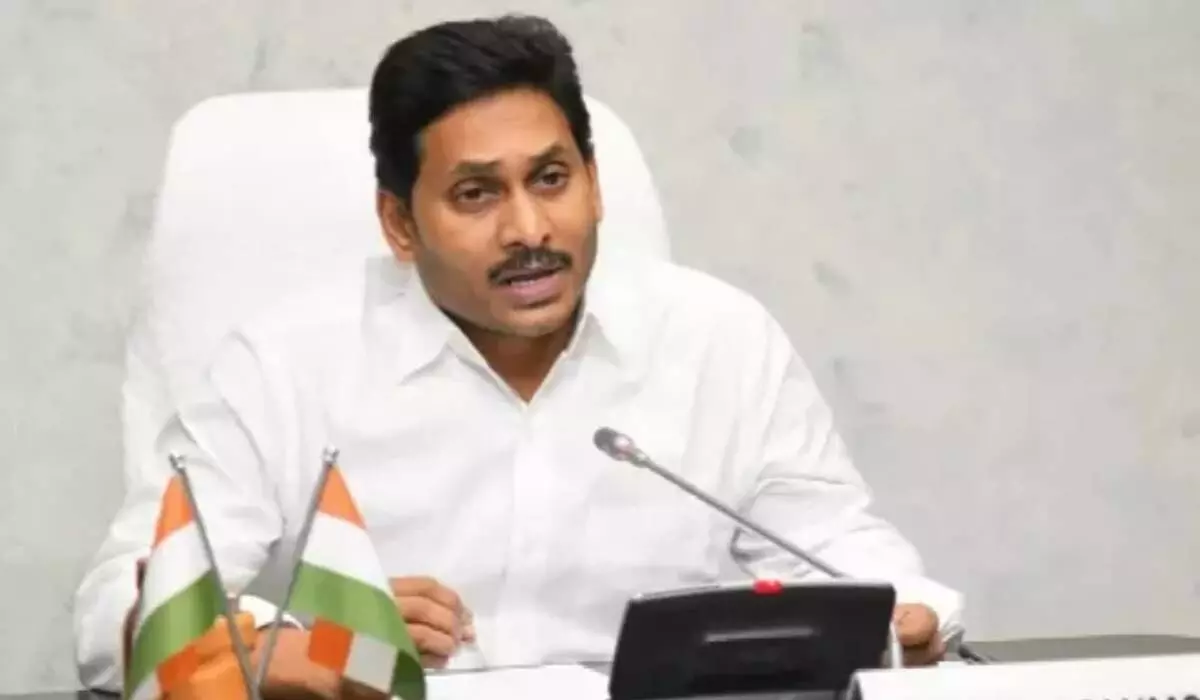AP CM sets up working group for edu reforms
The committee will finalise curriculum, infrastructure, resource deployment, learning content and labs requirement at government schools
image for illustrative purpose

Vijayawada Aiming at transforming the government school students into world class products equipped with modern technology, Andhra Pradesh Chief Minister YS Jagan Mohan Reddy has constituted a high-level working group with senior officials and representatives of global tech companies to finalise curriculum, infrastructure, resource deployment, learning content and labs requirement at schools.
The working group has been asked to submit its report by July 15. The working group, to be headed by the School Education Principal Secretary, will consist of IT Secretary, School Education Commissioner, Samagra Shiksha Project Director, SCERT Director, Ashutosh Chadha from Microsoft India, Shalini Kapoor from Amazon Web Services India, Shweta Khurana from Intel Asia Pacific, Jaijit Bhattacharya, President, Centre for Digital Economy Policy Research, Dr Archana G Gulati, ex Advisor Digital Communications, Niti Aayog and representatives of Google and Nasscom will be its members. The School Infrastructure Commissioner will be the convenor.
It is a step forward in the reforms being introduced by the government aiming at turning the students into global citizens by making them competitive with proper training in emerging and future technologies. The government wants them to acquire knowledge of high-end technologies during their education and gain top-notch posts at international level after completing the courses.
The working group will make recommendations on the steps to be taken to train the students and help them gain expertise in emerging technologies such as AI, Lord Language Models (LLMs), data analytics, ChatGPT, Web 3.0, augmented reality, virtual reality, IOT, centre back digital currency, autonomous vehicles, 3-D printing and gaming. It will also make suggestions on developing suitable curriculum, lesson plans, methods of training, requirement of labs and human resources to help students gain perfect knowledge in these subjects.
After assuming power, the Chief Minister announced to bring revolutionary changes in the educational sector and is implementing Amma Vodi, Jagananna Vidya Deevena, Vidya Kanuka and Vasathi Kanuka programmes besides providing basic infrastructure to the schools and making changes in the curriculum too, according to a government media release. As a result of the reforms, 41 lakh students are pursuing English medium from 2019-20 and in tune with this, students were given bilingual text books of science, mathematics and social studies under Jagananna Vidya Deevena in 2020-21. Labs were also established to help students improve English language skills.
In 2021-22, students of class 6 to 10 were given Oxford dictionaries while students of classes 3 to 5 were given pictorial dictionaries. Subject-teacher concept was also introduced starting from class 3. Steps have been initiated in 2022-23 to ensure that all government schools get CBSE affiliation and entered into an agreement with the Byjus for providing audio-visual content to the students in mathematics, social and science subjects to make the learning easier. 5,18,740 students of class 8 were given Byju’s-content loaded tabs.
In another revolutionary measure, interactive flat panels (IFPs) are being installed in 30,213 class rooms while 10,038 classrooms will have smart TVs as part of the digitalisation under Nadu-Nedu. These IFPs would be installed by July end and in the rest of the schools across the State, IFPs and smart TVs would be installed by December.
Steps are also being taken to conduct TOEFL examinations to school students in partnership with ETS (Educational Testing Service) to make them globally competitive.

